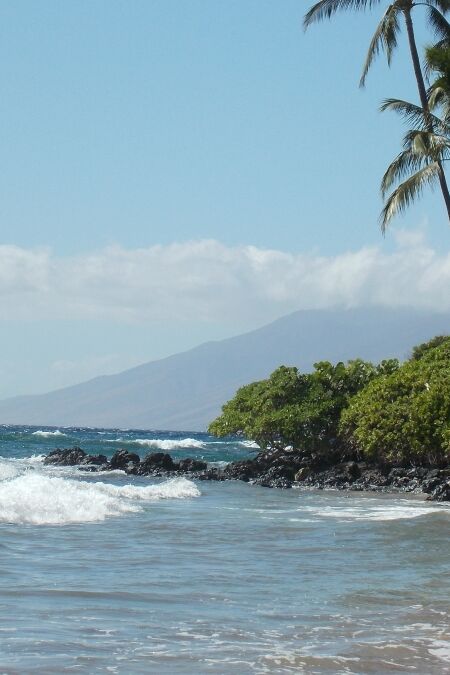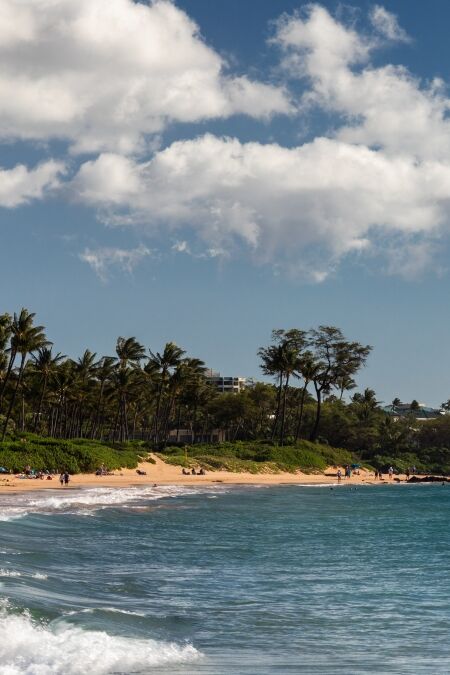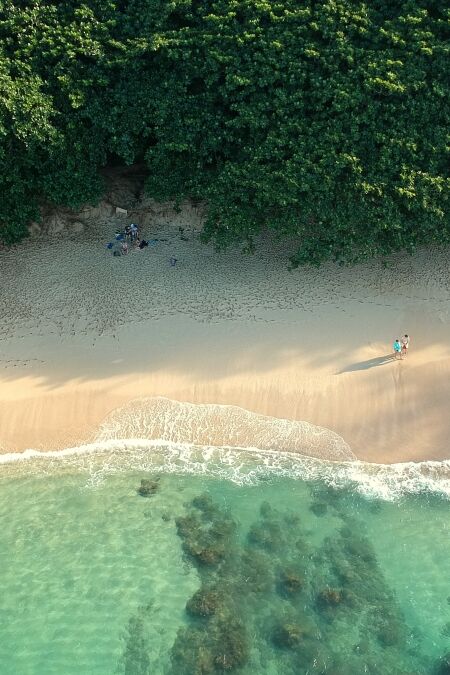On the stunning North Shore of Kauai, Haʻena Beach is a breathtaking destination that captivates visitors with its golden sands, turquoise waters, and dramatic cliffs. Offering a unique blend of natural beauty, cultural significance, and thrilling outdoor activities, it’s a must-visit for anyone exploring Hawaii. This travel guide will provide an in-depth look at Haʻena Beach, including its highlights, nearby attractions like Kee Beach and the Na Pali Coast, and practical tips to help you plan the perfect visit.
Highlights
- Haʻena Beach is renowned for its stunning views, featuring a backdrop of lush tropical cliffs and the iconic Mount Makana (Bali Hai), making it a perfect spot for photography and relaxation amidst nature’s beauty.
- The beach is one of Kauai’s top snorkeling destinations, with crystal-clear waters and vibrant coral reefs teeming with marine life, including over 250 species of fish and sea turtles.
- Haʻena Beach serves as the gateway to the famous Kalalau Trail, which leads adventurers through breathtaking landscapes along the Nāpali Coast.
- Enjoy swimming, beachcombing, and picnicking in designated areas, making it a great spot for a fun day out with children.
- For experienced surfers, Haʻena Beach offers thrilling waves, especially during winter months when swells are at their peak.
- The nearby Tunnels Beach is also popular for surfing and provides a lively atmosphere for water sports.
History
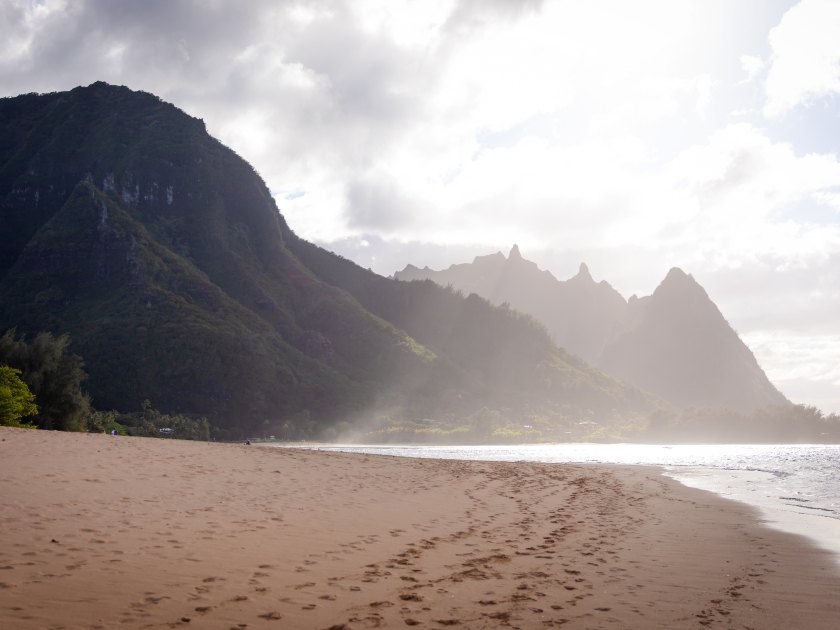
Ancient Governance and the Legacy of High Chiefess Kekela
Haʻena, an ancient Hawaiian settlement established around 300 A.D., was uniquely governed by a line of female chiefs. High Chiefess Kekela stands out as a key figure in this period, particularly during King Kamehameha’s reign. Following Kamehameha’s failed attempts to conquer Kauai, Kekela played a pivotal role as a peace envoy. Her diplomatic efforts earned her the land of Haʻena, granting the region political independence and solidifying her legacy.
Cultural Legends and Traditions
The name “Haʻena” means “red hot,” symbolizing its volcanic past and rich cultural heritage. The area is intertwined with Hawaiian mythology, notably the tales of the fire goddess Pele, who is said to have carved caves here for her lover. Haʻena was also famed for breeding poi dogs, a delicacy in ancient Hawaiian society, especially since women were forbidden from consuming certain fish and pork.
Archaeological Treasures
Haʻena State Park is home to archaeological sites dating back over 4,000 years, including sea caves and a heiau (shrine) dedicated to Laka, the goddess of hula. These sites highlight the region’s deep spiritual and historical connections, showcasing its importance in traditional Hawaiian life and practices.
Resilience Amid Natural Disasters
Haʻena’s history includes significant natural disasters, particularly the devastating tsunamis of 1946 and 1957. The 1946 tsunami caused widespread destruction and loss of life, while the 1957 event displaced many but spared lives. These disasters reshaped the community, fostering resilience and a strong sense of unity.
Sustainable Modern Initiatives
In recent years, Haʻena has embraced sustainability through the Haʻena Community-Based Subsistence Fishing Management Area. This program protects local fishing grounds from overuse, blending traditional Hawaiian practices with modern conservation efforts to preserve the area’s natural and cultural resources for future generations.
Things to Do
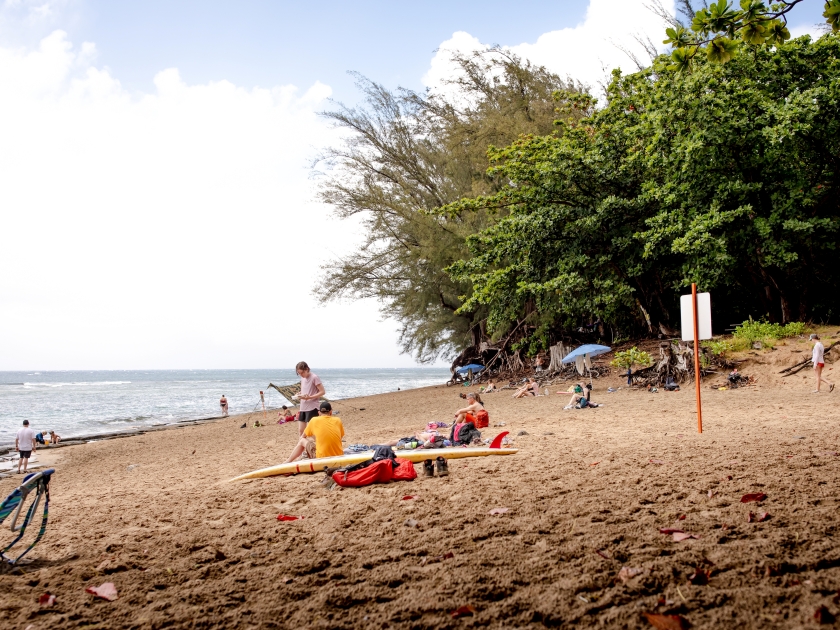
Swimming and Snorkeling
Haʻena Beach offers crystal-clear waters that are perfect for swimming and snorkeling during the calm summer months. The reef protects parts of the beach, providing a safe and vibrant underwater environment to explore. Visitors can marvel at colorful fish and coral formations, but it’s important to stay vigilant about ocean conditions, especially in winter when strong currents and high surf can make these activities dangerous. Always swim in lifeguard-monitored areas and follow local safety advisories.
Surfing
Haʻena Beach is a haven for experienced surfers seeking thrilling waves, particularly during the winter months when swells are at their strongest. While the surf at Haʻena can be intense, nearby Tunnels Beach provides additional opportunities for those looking for varied breaks. Whether you’re riding the waves or watching from the shore, the surfing scene here is both challenging and exhilarating.
Beachcombing and Sunbathing
For those looking to relax, Haʻena Beach is ideal for beachcombing and sunbathing. Stroll along the golden sands in search of unique shells and driftwood, or simply lay back and soak up the Hawaiian sun. The serene atmosphere and stunning views make it a perfect spot for family outings or a quiet retreat from the more crowded beaches.
Hiking Nearby Trails
Haʻena Beach serves as a gateway to some of Kauai’s most iconic hiking trails. Just a short distance away is the Kalalau Trailhead, leading adventurers along the breathtaking Napali Coast. For a shorter hike, the Hanakapiai Trail offers stunning views and an opportunity to explore lush valleys and waterfalls, making it an excellent option for both seasoned hikers and casual explorers.
Beach Amenities
Haʻena Beach Park offers a range of amenities to ensure a comfortable and enjoyable visit. Clean restrooms and outdoor showers are available for freshening up after a day in the ocean, while picnic tables provide the perfect spot for a meal with a stunning view. Additionally, lifeguards are on duty during peak times, offering peace of mind as you enjoy the beach’s beautiful yet sometimes unpredictable waters.
Nearby Attractions
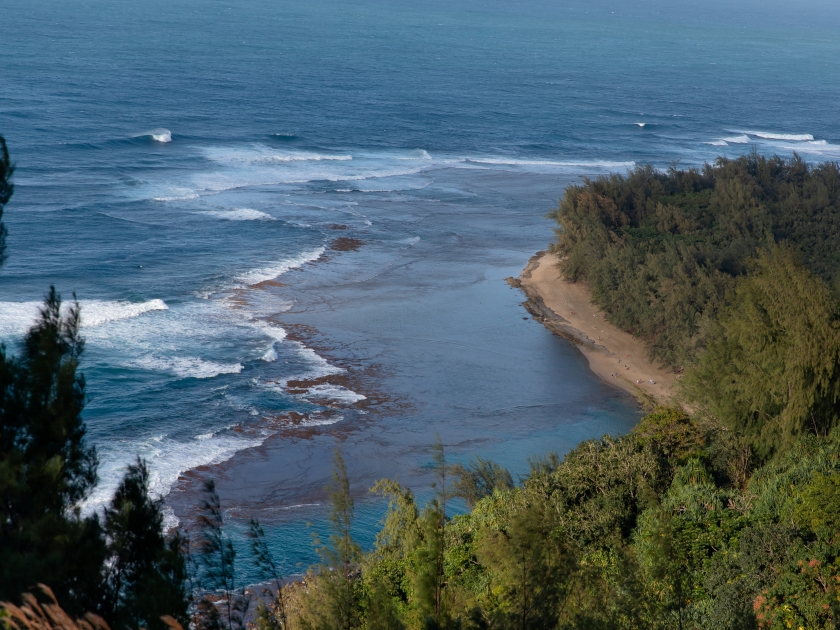
A trip to Haʻena Beach wouldn’t be complete without exploring its nearby attractions. Just a short distance away, Hāʻena State Park offers access to the iconic Kalalau Trail, leading to the breathtaking Nāpali Coast. Across the road, the Maniniholo Dry Cave invites visitors to discover a fascinating geological marvel steeped in Hawaiian lore. For nature enthusiasts, the Limahuli Garden and Preserve showcases native Hawaiian plants and ecosystems, providing an immersive experience of Kauai’s natural beauty.
Tips for Visiting
- Check Ocean Conditions: Always check weather and surf reports before visiting, especially during winter when currents can be strong.
- Arrive Early: Parking can fill up quickly, so plan to arrive early to secure a spot and avoid crowds.
- Bring Reef-Safe Sunscreen: Protect your skin and the marine ecosystem by using eco-friendly sunscreen.
- Pack Essentials: Bring water, snacks, and beach gear such as towels, umbrellas, and snorkeling equipment.
- Secure Permits: If you plan to visit Hāʻena State Park or hike the Kalalau Trail, ensure you have the required permits.
- Respect Nature: Avoid stepping on coral, dispose of trash responsibly, and follow Leave No Trace principles.
- Stay in Designated Areas: Swim and snorkel only in lifeguard-monitored zones to ensure safety.
- Be Prepared for Limited Cell Service: Reception can be spotty, so download maps and trail guides in advance.
Best Time to Visit
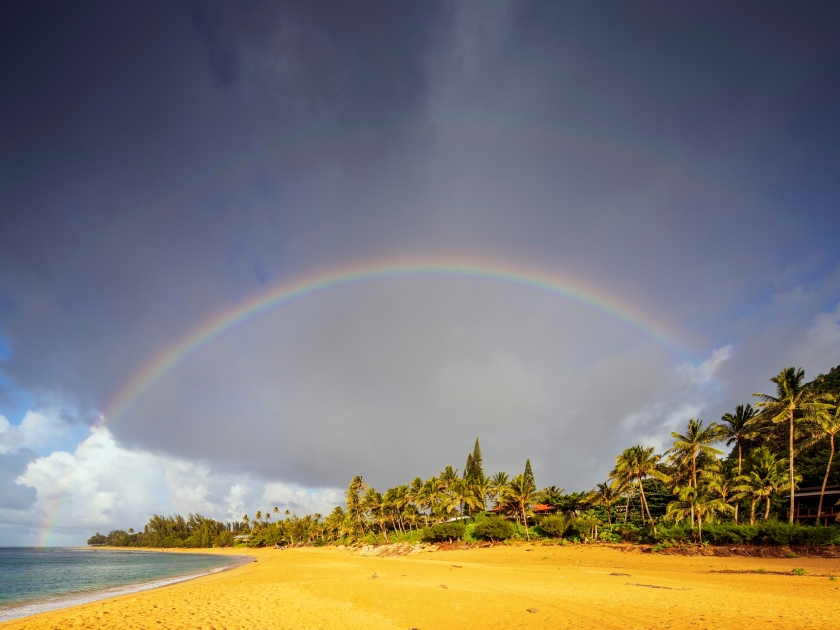
The best time to visit Haʻena Beach is during the summer months (May to September) when the waters are calmer, making it ideal for swimming and snorkeling. In contrast, the winter months often bring high surf and strong currents, which can create hazardous conditions. Planning your visit in the summer ensures safer ocean activities and more enjoyable beach days.
Frequently Asked Questions (FAQs)
Haʻena Beach Park offers restrooms, outdoor showers, picnic tables, and lifeguard services for visitors’ convenience.
Swimming is generally safe during the summer months when the waters are calm; however, conditions can be dangerous in winter due to strong currents and high surf.
Camping is not permitted at Haʻena Beach Park; visitors should seek designated camping areas elsewhere on Kauai.
Visitors can enjoy swimming, snorkeling, sunbathing, and beach walks, with nearby access to hiking trails like the Kalalau Trail.
Yes, there are lifeguards on duty at Haʻena Beach Park to ensure the safety for swimmers and beachgoers.
Always check ocean conditions before swimming, especially in winter; it’s also advisable to arrive early for parking as spaces can fill up quickly.
How to Get There
By Bus
Reaching Haena Beach by bus is a convenient and scenic option for those who prefer not to drive. You can take the Kauai Bus service, which operates routes that pass through various towns before reaching the north shore. From Lihue, board Route 100 or Route 200, and transfer to Route 400 at Kapaa. The final stop is in Hanalei, where you can enjoy a picturesque walk or take a shuttle for the last stretch to Haena Beach. Be sure to check the bus schedule in advance as the service operates on a limited timetable, especially on weekends.
By Car
Driving to Haena Beach offers flexibility and the chance to explore the stunning scenery at your own pace. Start from Lihue and take Kuhio Highway (Route 56), which transitions into Route 560. This scenic drive will lead you through charming towns and past lush landscapes before reaching the beach. The journey takes approximately an hour and a half, depending on traffic conditions. Parking is available at the Haena State Park, but be aware that spaces can fill up quickly during peak seasons, so it’s wise to arrive early or consider booking a parking spot in advance if possible.
Chasing Sunsets and Stories at Haʻena Beach
Haʻena Beach is the perfect fusion of thrill and tranquility, offering everything from snorkeling in crystal-clear waters to lounging on golden sands with dramatic cliffs as your backdrop. Add this North Shore gem to your Kauai itinerary for a journey that balances adventure with pure relaxation.


